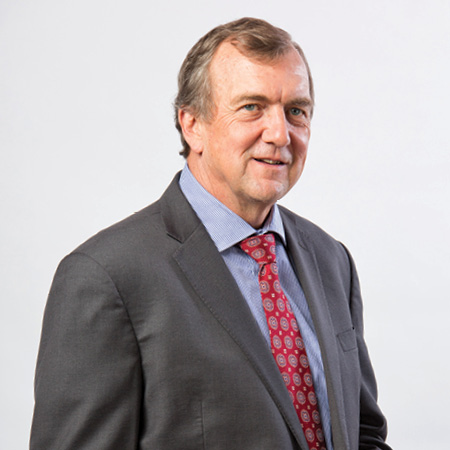There are 2 versions of Mark Bristow’s typical day. In one, he is a clean-cut executive in a suit and tie. Standing in the office or boardroom, he is serious and assuring as he indicates graphs and figures demonstrating company growth. He is a polished and trusted businessman who values good corporate strategy and making a profit — the type of leader that shareholders love.
In the other, he is a geologist standing among a group of miners and industrial engineers, surrounded by mounds of dirt and rock. Donning a high-visibility jacket and sunglasses, his hardhat barely shading him from the hot African sun, he points to mine plans on sheets of A3 paper. This man cares about achieving on-the-ground milestones, and being at the coalface — the type of leader that workers and communities hold dear.
When speaking with The CEO Magazine, Mark sits somewhere in the middle. He is in the more-relaxed atmosphere of Mauritius, where he lives. “My contrasts are quite extreme,” he says. “I don’t spend much time here though, as you can imagine. I spend more time in the hurly burly parts of sub-Saharan Africa, but I arrived here Sunday morning and I leave for Kinshasa [in the Democratic Republic of Congo] on Thursday.”
Mining is a multifaceted industry
Being the CEO of a company like Randgold Resources requires the contrast of executive prowess and competence on the ground that Mark displays on a regular basis. A leading gold mining company in Africa, Mark says Randgold Resources was founded on the understanding that mining is a multifaceted industry, and one that must look after the needs of all stakeholders.
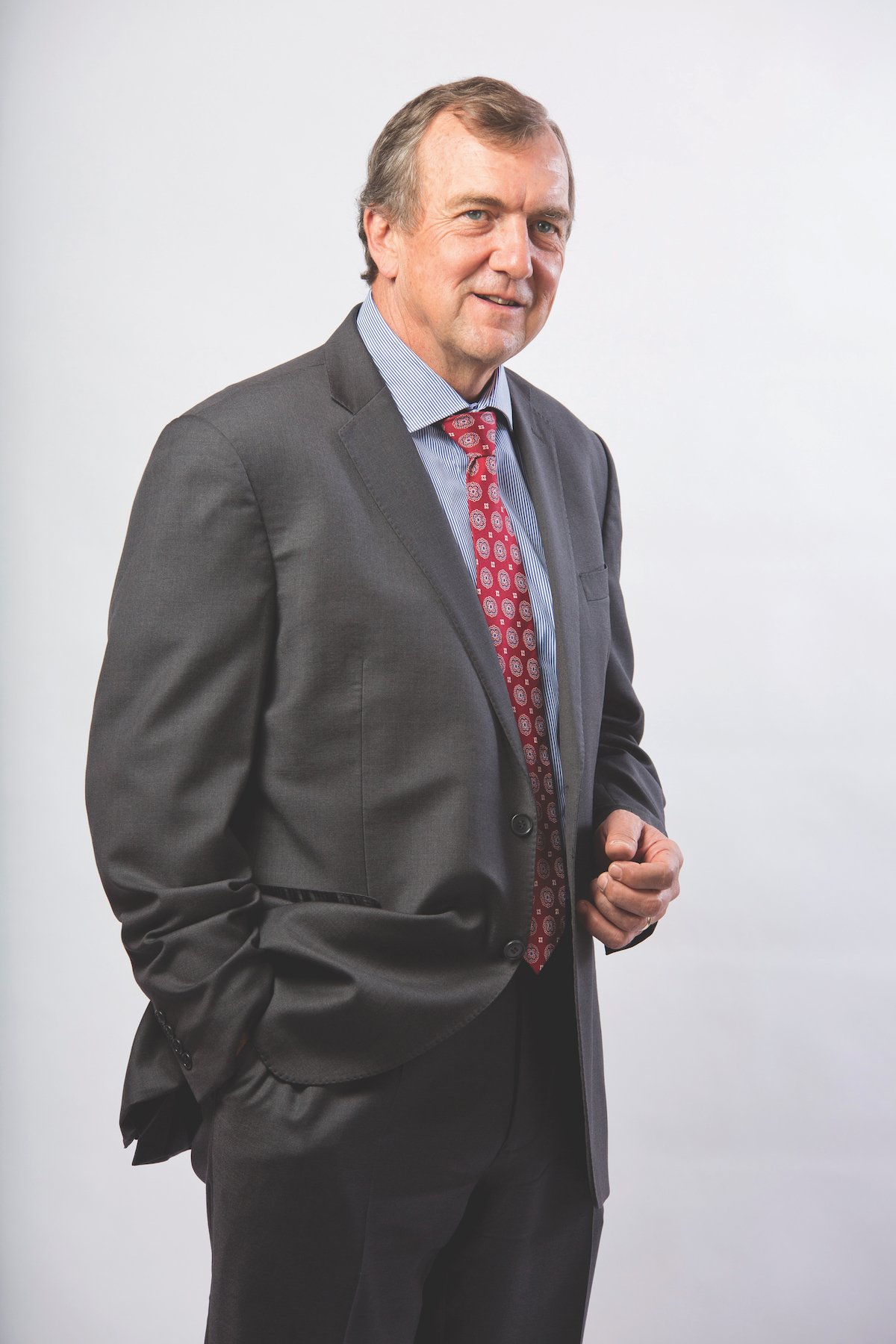
While many of our competitors in the industry have been struggling in the grip of a bear market, we achieved what was probably our best year yet.
“Our sustainability strategy, which is an integral part of our overall business plan, has 3 pillars: sharing value with all stakeholders; building strong partnerships; and creating long-term economic legacies for our mines’ communities,” he says. “Randgold’s whole philosophy is to recreate value for all our stakeholders because we recognise that our host countries and their nationals are equally as important stakeholders as our own shareholders, and it’s that formula that sets us apart from our competitors.”
Mark established Randgold Resources in 1995 on the foundation of his pioneer exploration work in West Africa. For someone that blends so well with different crowds, Mark says the company’s success in entering its third decade of operation is his aversion to following the herd. With his individual strategy and mentality, the company has managed to avoid the worst of a tumultuous period for metal miners.
At the mercy of the market
“I started Randgold Resources more than 20 years ago and what amazed me was the gold industry paid corporations a premium even if they made a loss. And of course with the fluctuations in gold pricing, the profitability of most companies is at the mercy of the market,” Mark explains. “What I set out to do was build an always-profitable gold company by setting longer-term goals, and not to get seduced by the quarterly toing and froing. It is impossible to run a public company and beat yourself every quarter.”
There have been fewer great opportunities to demonstrate the strength of this strategy than the past 2 years. While recent global turbulence should create a bullishgold market, analysts have agreed that production of the precious metal will continue to decline due to a drop in new projects and exploration, regardless of any potential increase in the gold price. Meanwhile, the gold mining industry has been incapacitated by an aggregate debt of US$47 billion, almost fifty times the figure of 10 years ago.
For more traditional large gold firms, even a significant rise in the gold price and an injection of fresh investment into new projects will serve only to clear debt rather than add value to the market. Though Randgold Resources has seen its fair share of hurdles over the past 2 decades, it stands among its competitors entirely debt-free — even operating at a profit every year.
A golden year
“There have been many memorable milestones for Randgold Resources, but 2015 stood out as perhaps the most significant,” says Mark. “While many of our competitors in the industry have been struggling in the grip of a bear market, we achieved what was probably our best year yet.”
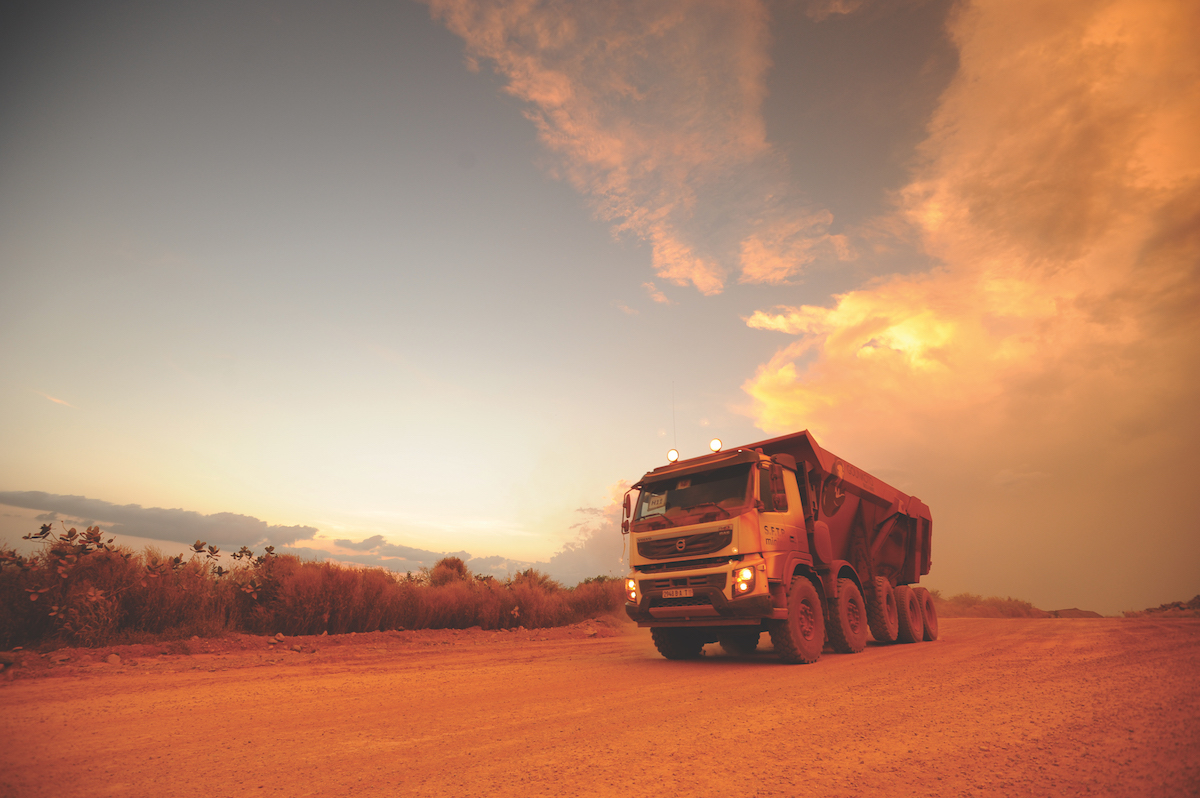
At its 5 key gold mines around Africa — including sites across the Democratic Republic of Congo (Kibala), Mali (Loulo-Gounkoto and Morila), Côte d’lvoire (Tongon) and Senegal (Massawa) — Randgold has managed to meet, and sustain, demands around production and cost, as well as reaching a key milestone to pass 1.2 million ounces of gold. “5 years ago we set out this milestone to reach 1.2 million ounces. For us to achieve that milestone we had to do a number of things, the most significant of which was that we had to deliver a full year of production on the Kabali mine. We did that, and then some,” says Mark. “We also had to prove we could sustain production at the new Loulo-Gounkoto operations, which we also did. Those are the 2 big engines in our business right now.”
“We have always presented our bottom-line net earnings and net profits and today we have no debts. We are growing and we are profitable, whichever way you cut us.
In the face of tough market conditions, Randgold continued to invest in both greenfields and brownfields exploration throughout 2015 and has remained on track to meet targets and deliver on its promises to stakeholders. “It’s easy to achieve all this when the stars are aligned, but it is much more difficult in an environment as challenged as this one, so I am very proud of our results. They are the product of widespread efforts that saw improvements across the board.”
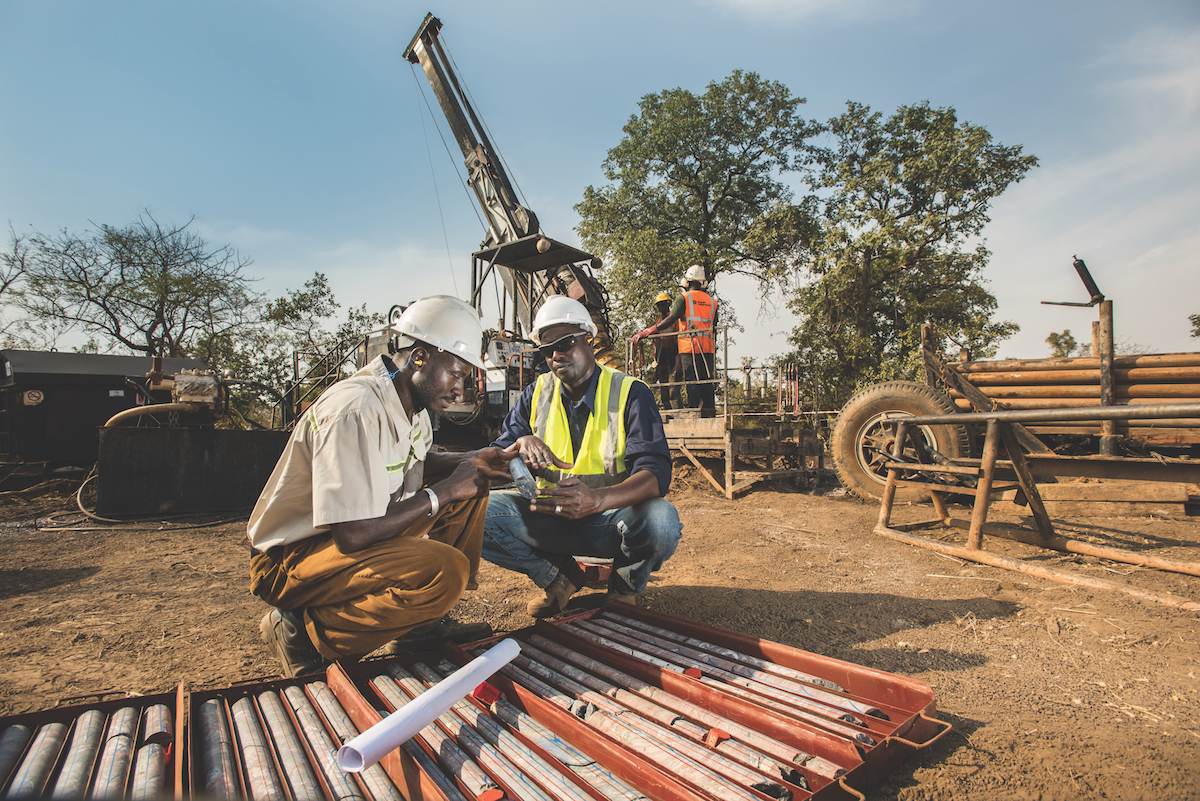
According to Mark, it’s no surprise that other larger companies in the gold sector are waning under the weight of their debts, claiming that the industry can be a farce. “Inevitably, if you run your business to the drum of the market, you’re going to come unstuck. We saw the whole gold industry fall apart last year.” With many competitors scraping along in survival mode, Randgold hoped to take advantage of the low prices for potential acquisitions, but opportunities never took off.
“With the mid-cap companies there was stress everywhere and we hunted M&A opportunities in that space, but it was very short-lived and we couldn’t find assets that fit our criteria at the right price,” Mark says. The company was born from the acquisition of the Syama mine in Mali, which Randgold bought from BHP Billiton in 1995 after BHP ran into major social and labour issues and decided to sell up.
Though Randgold would go on to sell the Syama site in 2004, the original buyout shifted Randgold from being a small exploration company to an operations outfit.
M&A used too often for growth
In late 1996, Randgold made its first major discovery, which became the Morila gold mine in Mali — one of the most profitable gold companies of the past 2 decades. The following year, Randgold Resources was listed on the London Stock Exchange and raised US$82 million as the gold price was collapsing. The company was also involved in a hostile micro-acquisition in 2009 to buy what is now its Kibali gold mine. M&A has caused some trouble in the industry, explains Mark, as it has been used too often for growth rather than developing internal value creation, removing the safety net required to avoid collapse once the gold price dipped.
“With premiums handed out, you had big companies in our industry suddenly in dire straits with the market capital equivalent to their debts. In fact, across all base metal industries, you often see these fantastically ‘successful’ companies get really hammered,” Mark says. “That’s why we shy away from too many self-invented measures of financial success. We have always presented our bottom-line net earnings and net profits and today we have no debts. We are growing and we are profitable, whichever way you cut us.”
With a thinning selection of profitable M&A opportunities, Randgold’s focus has turned to consolidating its exploration footprint across its chosen regions, as well as acquiring land across Eastern Senegal, Western Mali, the Northern Ivory Coast and the North Eastern Democratic Republic of Congo. “We are doing substantial exploration across those regions, and we have managed to secure a lot of land,” explains Mark. “Exploration is really the building block of this company; it’s through this that we founded 4 of the 5 mines we operate today. The first one we acquired, Kibala, was struggling and we have managed to double its reserves.”
Looking long-term
Randgold’s long-term strategy of creating real value through the discovery of new sites and its development into profitable mines not only ensures quality dividends for shareholders, it also plays a large role in the economic and social development of the mines’ host countries — a key pillar to the company’s sustainability goals. “One of our key successes really lies in our social licence, with our continued investment in our people, the host country and its national skill base,” Mark says. “We strive to ensure that we are responsible corporate citizens in our own country through our engagement and partnering of the economy of that country.”
Many other mining players choosing to enter a developing region like Africa will often bring their existing service providers with them. “As an investor in a national asset, and as a custodian of that asset, I think you’re required to add value to that nation, not build a wall around yourself and live in exclusion from the surrounding economy,” says Mark. And partnering with local contractors within each of its mining regions has also helped Randgold to get through challenging times. “If you’re working in Africa and you import a French logistics company, the first thing that happens when things go pear shaped is you get shut out —whereas if you have an in-country partner, it doesn’t happen that way,” Mark explains. “We believe in local partnerships and in building strong local linkage with regional businesses; and why not? Africa is a dynamic place.”

As an investor in a national asset, and as a custodian of that asset, I think you’re required to add value to that nation, not build a wall around yourself and live in exclusion from the surrounding economy.
Randgold Resources is also very keen on utilising local talent and ensuring continued development of its people, with a locals-first employment policy in place. “All of our mines are run almost entirely by host-country nationals. We’re an African-focused gold company run by Africans for the benefit of Africans, and we’ve been able to deliver value for our stakeholders because that is our focus,” Mark says. Each Randgold site operates autonomously, independent of higher executive power, and each site’s line manager serves as the owners of their own store.
‘I don’t have an office, so I can’t call anyone to it’
“We have this view that when there is an issue, then you go to the issue, not the higher executive team. You don’t call people to your office to get caught up in hierarchy or bureaucracy. I don’t have an office, so I can’t call anyone to it. That is our philosophy,” says Mark. “We have really created a very dynamic situation where all our local executives are empowered. We run our businesses as standalone operations towards in-country companies, and that’s how we operate with government representatives and our unions. It has been a successful formula.” Mark’s commitment to supporting the local communities that Randgold operates also sees him regularly participate in an annual month-long motorbike trip across Africa in a bid to raise money for the Nos Vies en Partage Foundation — an independent charitable foundation set up by Randgold in 2014 to help fight poverty in the continent. This year Mark joined a group of motorcyclists on his fifth trans-Africa motorbike safari. The month-long trip saw the riders tackle a 7,500-kilometre route from Mombasa, on Kenya’s East Coast, all the way to Matadi in the Democratic Republic of Congo, passing through dense equatorial Congolese jungle and the Congo and Nile rivers.
A company that is true to its values
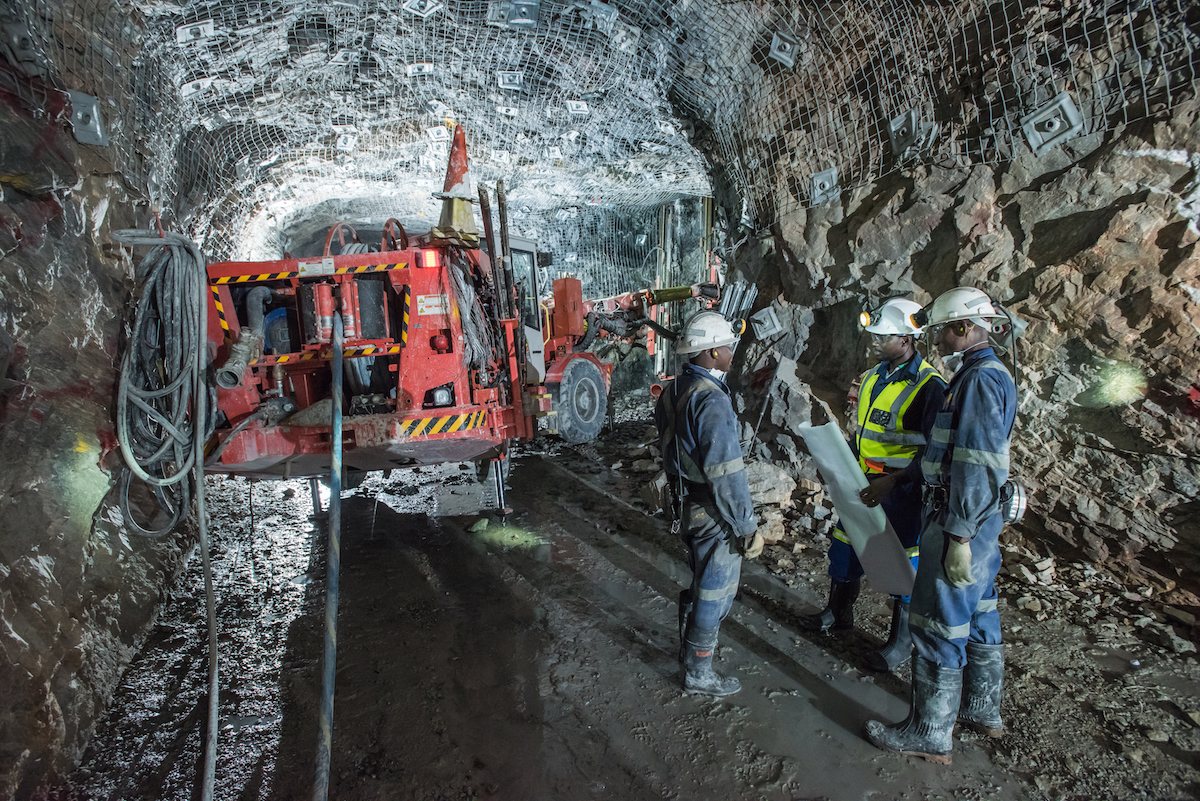
Looking ahead, Randgold will be continually reviewing its operations at each site and setting new milestones to ensure ongoing profitability. “We have reviewed all our business plans with a strong focus on real returns and breakeven cash flows, and we have smoothed out all production profiles,” he says. The company’s latest chief executive’s report shows that the Loulo-Gounkoto and Kibali mines can now both forecast an annual output of more than 600,000 ounces at US$600 per ounce for around a decade, while the Tongon site is budgeting for an annual production averaging 300,000 ounces over 5 years.
“Our share price when we listed was just more than US$100 and today we are worth US$7.5 billion,” says Mark. “Our business model will help us to continue our growth for our shareholders and for Africa, and we will remain shielded from the fluctuations of the gold price cycle while seeking out more rich ore bodies across the continent so that we can create multi-million ounce deposits.” Though priding itself on its sustainable business model in an otherwise volatile market, Randgold has not been without its own substantial challenges, but Mark says he believes staying true to the company’s values will always steer it back to good health. “Operational excellence can be in the eyes of the beholder. We have had many screw-ups in our twenty years and we’ve had to face up to failures or deal with challenging social and political swings, but we’ve been able to overcome them and still deliver value,” he says. “Our whole DNA is around how we run this business to create value for our stakeholders. We would rather make more money and produce less gold than produce a whole pile of gold at a loss.”

